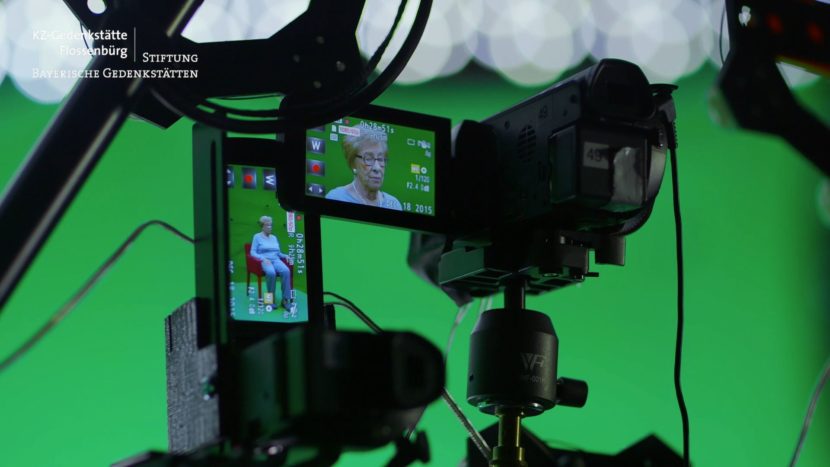The Future of Contemporary Witnessing
What will be the fate of interviews with the survivors as soon as they will no longer be able to speak for themselves? What will be the future significance of these collected testimonies? What is the responsibility of institutions whose task it is to preserve these testimonies and render them accessible to the general public?
What are the roles in which survivors are presented, and what is the function of their testimony in education? What are the themes, public narratives, and political statements in which they are used? Can digital offers make up for personal meetings with contemporary witnesses?

116 Cameras, documentary film by Davina Pardo, USA 2017; Birdling Films, New York. Running time: 15:22 min
A camera crew documents the production of an “interactive hologram” of Holocaust survivor Eva Schloss. Holograms simulate dialogs with survivors. The 3D projection of the survivor provides algorithm-based answers to visitors’ questions. For the most diverse reasons, witnesses are prepared to subject themselves to these strenuous preparations: some wish to prevent the loss of their memories; others hope to reach young people also in the future; some believe to become immortal that way.